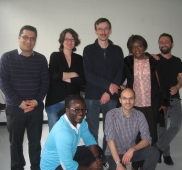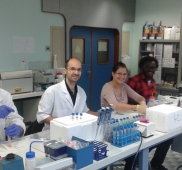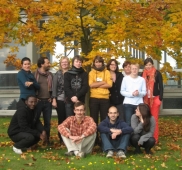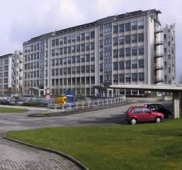General Information
The Service Immunology was originally part of the Pasteur Institute of Brussels and was integrated in the Scientific Institute of Public Health in 2007. The activities of the service were initially focused on Mycobacterial Immunology and Vaccinology (M.tuberculosis, M. ulcerans and M. avium ssp. paratuberculosis) and have been extended more recently to research on Mould allergy. The service is also partner in the National Reference Centre for Bordetella pertussis since 2011 and involved in serosurveillance studies of vaccine preventable diseases. The service has played a pioneering role in the identification of protective antigens of TB, more in particular the Ag85 family of mycolyl-transferases.
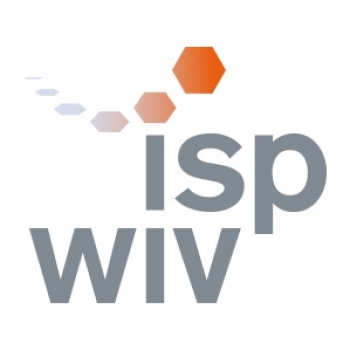
Key researchers:
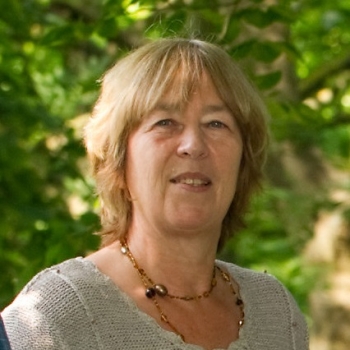
Kris Huygen (PhD), created the service in the mid-eighties and has been involved since in research on mycobacterial infections. In a Nature Medicine paper, she demonstrated the protective role of Ag85A using plasmid DNA vaccination (1996)
Olivier Denis (PhD) joined the lab in 1995 and was actively involved in the characterization of CD4+ and particularly CD8+ T cell epitopes in DNA vaccinated mice.
Marta Romano (PhD) joined the lab in 2001. Her work published in J Immunology in 2004 showed for the first time the induction of in vivo functional Db restricted cytolytic T cells against the protective antigen PstS-3 (Rv 0928), a putative phosphate transport receptor.
Nicolas Bruffaerts worked on his PhD thesis with financing of the FP7 funded NEWTBVAC project. His work showed that a combination of coding plasmid DNA with M. bovis BCG can increase the CD4+ and CD8+ potential of the latter vaccine. In a PLoS One paper of 2015 he showed that this combination is effective, not only in mice but also in a large mammalian species i.e. Sus scrofa (pig)
Giresse Tima is the PhD student, who since 2013 is involved in the study of the inflammatory and adjuvant properties of synthetic mycolic acid esters. This work is performed in collaboration with Prof. Marc Baird (Bangor University, Wales UK) and Johan Grooten (UGent, Belgium) and is partially financed by the TBVAC 2020 consortium.
Our projects:
- Analysis of the signalling pathways involved in the innate immune response triggered by synthetic glycolipids in vivo using genetically deleted KO mice
- Development of new adjuvants based on synthetic analogs of mycolic acid esters
- Analysis of the potential of the Wistar rat model for the study of M. tuberculosis infection as an alternative model for the preclinical testing of vaccines against primary and reactivation TB (partially financed by the International Network of Pasteur Institutes RIIP)
- Study of the susceptibility to M. tuberculosis in mice genetically inactivated in coronin1 (collaboration with Prof. J. Pieters, Biozentrum Basel, Switzerland)
- Study of the virulence and immunogenicity of different Mycobacterium africanum West African type 2 isolates (collaboration with Dr. B. de Jong, Institute of Tropical Medicine, Antwerp).
Key Publications:
- Bruffaerts N, Pedersen LE, Vandermeulen G, Préat V, Stockhofe-Zurwieden N, Huygen K, Romano M. Increased B and T Cell Responses in M. bovis Bacille Calmette-Guérin Vaccinated Pigs Co-Immunized with Plasmid DNA Encoding a Prototype Tuberculosis Antigen. PLoS ONE 2015 Jul 14;10(7):e0132288
- Bruffaerts,N., Huygen,K., and Romano,M., Review: DNA vaccines against tuberculosis. Expert Opin Biol Ther. 2014. 14(12):1801-13
- Denis,O., Tanghe,A., Palfliet,K., Jurion,F., Van den Berg,T.P., Vanonckelen,A., Ooms,J., Saman,E., Ulmer,J.B., Content,J., and Huygen,K., Vaccination with plasmid DNA encoding mycobacterial antigen 85A stimulates a CD4+ and CD8+ T-cell epitopic repertoire broader than that stimulated by Mycobacterium tuberculosis H37Rv infection. Infect Immun 1998. 66: 1527-1533.
- Huygen,K., Content,J., Denis,O., Montgomery,D.L., Yawman,A.M., Deck,R.R., DeWitt,C.M., Orme,I.M., Baldwin,S., D’Souza,C., Drowart,A., Lozes,E., Vandenbussche,P., Van Vooren,J.P., Liu,M.A., and Ulmer,J.B., Immunogenicity and protective efficacy of a tuberculosis DNA vaccine. Nat.Med. 1996. 2: 893-898.
- Huygen,K., The Immunodominant T-Cell Epitopes of the Mycolyl-Transferases of the Antigen 85 Complex of M. tuberculosis. Front Immunol. 2014. 5: 321.
- Romano,M., Denis,O., D’Souza,S., Wang,X.M., Ottenhoff,T.H.M., Brulet,J.M., and Huygen,K., Induction of in vivo functional Db restricted cytolytic T cell activity against a putative phosphate transport receptor of M. tuberculosis. J Immunol 2004. 172: 6913-6921.
- Romano,M., D’Souza,S., Adnet,P.Y., Laali,R., Jurion,F., Palfliet,K., and Huygen,K., Priming but not boosting with plasmid DNA encoding mycolyl-transferase Ag85A from M. tuberculosis increases the survival time of M. bovis BCG vaccinated mice against low dose intravenous challenge with M. tuberculosis H37Rv. Vaccine 2006. 24: 3353-3364.
- Romano,M. and Huygen,K., An update on vaccines for tuberculosis – there is more to it than just waning of BCG efficacy with time. Expert.Opin.Biol.Ther. 2012. 12: 1601-1610.


